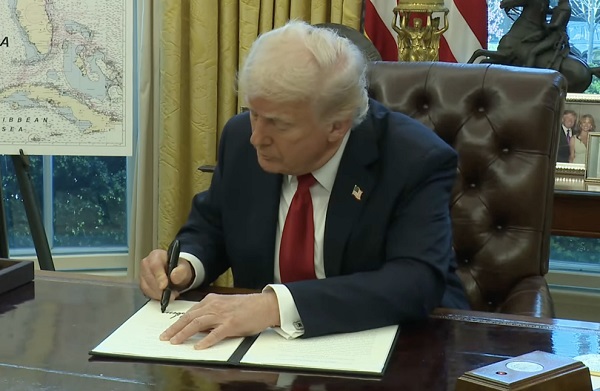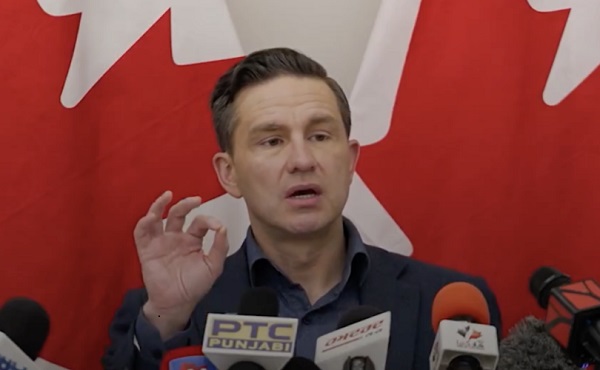Health
Canada remains poor performer among countries with universal health care

From the Fraser Institute
By Mackenzie Moir and Bacchus Barua
Canada reported far fewer physicians (ranking 28th of 30) and hospital beds (23rd of 29) per 1,000 people in 2021. And ranked low for the availability of MRI machines (25th of 29) and CT scanners (26thof 30) per million people in 2019
Earlier this year, the Trudeau government announced it will increase health-care spending to provinces and territories by $196.1 billion over the next decade. But patients hoping for improved access will likely be disappointed. In reality, Canada’s health-care system already ranks as one of the most expensive systems in the world, but only has mediocre results to show for it. In other words, the problem isn’t the amount of money we spend, it’s the poor value we get for our health-care dollars.
A new study compared the spending and performance of Canada’s system with 29 other universal health-care systems worldwide. According to the study (after adjusting for population age in each country), Canada was the highest spender on health care as a share of the economy (at 12.6 per cent) and ninth-highest on a per person basis in 2021, the latest year of available data.
And yet, compared to other universal countries, Canada reported far fewer physicians (ranking 28th of 30) and hospital beds (23rd of 29) per 1,000 people in 2021. And ranked low for the availability of MRI machines (25th of 29) and CT scanners (26thof 30) per million people in 2019 (the latest year of available data).
Unsurprisingly, scarce health-care resources are accompanied by long wait times. Using data collected in 2020 by the Commonwealth Fund, the study found that only 38 per cent of Canadians reported waiting less than four weeks for a specialist appointment—a much smaller percentage than countries such as Switzerland (68 per cent) and Germany (67 per cent). On this indicator, Canada ranked 10th out of 10 countries. Canada also ranked dead last (10th) on timely access to elective surgery—with 62 per cent of Canadians reporting waiting less than four months—compared to 99 per cent of Germans and 94 per cent of Swiss.
While these results were disappointing, Canada reported mixed results in other areas of performance. For example, although Canada performed poorly on safety indicators such as obstetric trauma during birth (23rd of 23 countries), it performed above the OECD average on other indicators including heart attack survival rates (9th of 25 countries). But while the Canadian system has in some areas performed in line with its high spending levels, overall it’s struggled to meet many of its basic obligations—especially timely access to care.
With its latest increase in health-care spending, the Trudeau government again ignores the fact that Canada already has one of the most expensive universal health-care systems in the world. And although some of this new spending is predicated on provinces tracking progress and demonstrating improvement on certain indicators, international data reveal a simple truth—Canadians do not receive commensurate value for their health-care dollars. Without fundamental reform, it’s unlikely the new spending promised by the Trudeau government will produce improved performance for Canadian patients and their families.
Authors:
Health
Arkansas approves ivermectin for purchase without prescription

From LifeSiteNews
By Stephen Kokx
Ivermectin has been praised by many doctors and natural medicine users as a remedy for COVID and other illnesses, despite being attacked by mainstream media and Big Pharma.
Arkansas Governor Sarah Huckabee Sanders has approved ivermectin to be sold over the counter without a prescription.
Dismissed as “horse paste” by the mainstream media and Big Pharma during the COVID-19 outbreak, ivermectin was praised by many doctors and wholistic and natural medicine users for helping them overcome coronavirus symptoms.
Podcaster Joe Rogan was one public person the media was especially critical of after he announced he used ivermectin. America’s Frontline Doctors, actor Mel Gibson, and Robert F. Kennedy Jr., who now serves as the Trump administration’s Health and Human Services Secretary, have also defended ivermectin as well as hydroxychloroquine. Gibson has stated that he has friends who have been cured of their cancer thanks to the drugs.
Sanders signed the bill into law on Tuesday after it received bipartisan support from the Arkansas legislature, which approved it by a 78-14 and 29-5 vote in the state House and state Senate, respectively. The law will go into effect 90 days after the chamber adjourns for summer recess.
Medical freedom activists in the state are telling local media that they look forward to seeing how ivermectin can help alleviate illness.
“We don’t know what the future holds for the human drug, but to me it validates the doctors that were demonized for using it,” one person said.
GOP state Sen. Alan Clark likewise remarked: “I’m more trusting of my constituents’ and friends’ common sense than I am of the medical industry at the moment.”
Ivermectin won FDA approval in 1998 under the brand name Stromectol, produced by pharmaceutical giant Merck, and is intended to treat parasitic infections.
In 2021, comedian and political commentator Jimmy Dore compared drug giant Pfizer’s expensive new antiviral drug for COVID with ivermectin, which is far cheaper.
“I’ve never seen the propaganda machine so hard at work as it’s been against ivermectin,” Dore said on his podcast. “Ivermectin won a Nobel Prize for human medicine in 2015, but the media really has everyone believing it’s for horses.”
Former NFL star quarterback Aaron Rodger also defended ivermectin during COVID. While appearing on ESPN, he said he was using the drug along with Vitamin C and zinc to manage his symptoms.
“Why do people hate ivermectin? … You can’t make any money off of it,” he remarked.
Alberta
Province announces plans for nine new ‘urgent care centres’ – redirecting 200,000 hospital visits

Expanding urgent care across Alberta
If passed, Budget 2025 includes $17 million in planning funds to support the development of urgent care facilities across the province.
As Alberta’s population grows, so does the demand for health care. In response, the government is making significant investments to ensure every Albertan has access to high-quality care close to home. Currently, more than 35 per cent of emergency department visits are for non-life-threatening conditions that could be treated at urgent care centres. By expanding these centres, Alberta’s government is enhancing the health care system and improving access to timely care.
If passed, Budget 2025 includes $15 million to support plans for eight new urgent care centres and an additional $2 million in planning funds for an integrated primary and urgent care facility in Airdrie. These investments will help redirect up to 200,000 lower-acuity emergency department visits annually, freeing up capacity for life-threatening cases, reducing wait times and improving access to care for Albertans.
“More people are choosing to call Alberta home, which is why we are taking action to build capacity across the health care system. Urgent care centres help bridge the gap between primary care and emergency departments, providing timely care for non-life-threatening conditions.”
“Our team at Infrastructure is fully committed to leading the important task of planning these eight new urgent care facilities across the province. Investments into facilities like these help strengthen our communities by alleviating strains on emergency departments and enhance access to care. I am looking forward to the important work ahead.”
The locations for the eight new urgent care centres were selected based on current and projected increases in demand for lower-acuity care at emergency departments. The new facilities will be in west Edmonton, south Edmonton, Westview (Stony Plain/Spruce Grove), east Calgary, Lethbridge, Medicine Hat, Cold Lake and Fort McMurray.
“Too many Albertans, especially those living in rural communities, are travelling significant distances to receive care. Advancing plans for new urgent care centres will build capacity across the health care system.”
“Additional urgent care centres across Alberta will give Albertans more options for accessing the right level of care when it’s needed. This is a necessary and substantial investment that will eventually ease some of the pressures on our emergency departments.”
The remaining $2 million will support planning for One Health Airdrie’s integrated primary and urgent care facility. The operating model, approved last fall, will see One Health Airdrie as the primary care operator, while urgent care services will be publicly funded and operated by a provider selected through a competitive process.
“Our new Airdrie facility, offering integrated primary and urgent care, will provide same-day access to approximately 30,000 primary care patients and increase urgent care capacity by around 200 per cent, benefiting the entire community and surrounding areas. We are very excited.”
Alberta’s government will continue to make smart, strategic investments in health facilities to support the delivery of publicly funded health programs and services to ensure Albertans have access to the care they need, when and where they need it.
Budget 2025 is meeting the challenge faced by Alberta with continued investments in education and health, lower taxes for families and a focus on the economy.
Quick facts
- The $2 million in planning funds for One Health Airdrie are part of a total $24-million investment to advance planning on several health capital initiatives across the province through Budget 2025.
- Alberta’s population is growing, and visits to emergency departments are projected to increase by 27 per cent by 2038.
- Last year, Alberta’s government provided $8.4 million for renovations to the existing Airdrie Community Health Centre.
Related information
-

 Alberta2 days ago
Alberta2 days agoAlberta Institute urging Premier Smith to follow Saskatchewan and drop Industrial Carbon Tax
-

 Addictions1 day ago
Addictions1 day agoShould fentanyl dealers face manslaughter charges for fatal overdoses?
-

 2025 Federal Election2 days ago
2025 Federal Election2 days agoFool Me Once: The Cost of Carney–Trudeau Tax Games
-

 Alberta1 day ago
Alberta1 day agoAlbertans have contributed $53.6 billion to the retirement of Canadians in other provinces
-

 2025 Federal Election1 day ago
2025 Federal Election1 day agoChinese Gangs Dominate Canada: Why Will Voters Give Liberals Another Term?
-

 Automotive2 days ago
Automotive2 days agoTrump announces 25% tariff on foreign automobiles as reciprocal tariffs loom
-

 Energy1 day ago
Energy1 day agoEnergy, climate, and economics — A smarter path for Canada
-

 Also Interesting23 hours ago
Also Interesting23 hours agoThe bizarre story of Taro Tsujimoto







